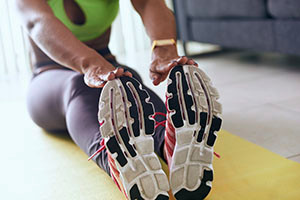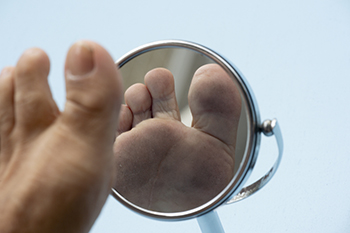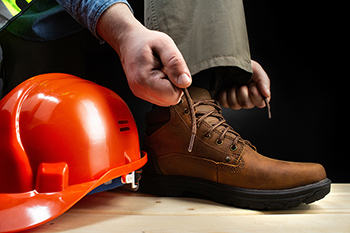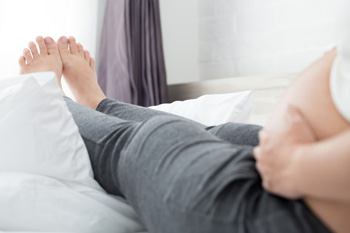
Drexel Hill (484) 521-0233
West Chester (610) 436-5883

Drexel Hill (484) 521-0233
West Chester (610) 436-5883

There are several effective stretches that can help to prevent running injuries. For people who enjoy running and jogging, these exercises are often woven into their daily routine. This may be especially true of people that run marathons and who cannot afford to have an injury get in the way of their running goals. A good way to start implementing these practices consists of warming up and cooling down before and after running. People who follow a running program may be less likely to experience an injury, and this may be a result of having a purpose while running. With this in mind, knowing where and when the road will turn, in addition to expecting any hills may help to prevent painful running injuries. It is beneficial to increase speed and mileage gradually, which may avoid heel and calf pain. Many people use a foam roller that can help to strengthen the bottom of the foot, and it can help to perform exercises to increase the range of motion in the feet and legs. If you would like more information about how running injuries can affect the feet and how to prevent them, it is suggested that you consult with a podiatrist who can provide you with useful knowledge.
Exercising your feet regularly with the proper foot wear is a great way to prevent injuries. If you have any concerns about your feet, contact the podiatrists of Dr. Siegerman & Associates. Our doctors will treat your foot and ankle needs.
How to Prevent Running Injuries
Many common running injuries are caused by overuse and overtraining. When the back of the kneecap starts wearing out and starts causing pain in your knee, this is commonly referred to as runner’s knee. Runner’s knee is a decrease in strength in your quadriceps and can occur if you’re not wearing properly fitted or supporting shoes. To prevent runner’s knee, focusing on hip strengthening is a good idea, as well as strengthening your quads to keep the kneecaps aligned.
What Are Some Causes of Running Injuries?
- One cause of a common running injury is called iliotibial band syndrome.
- Plantar fasciitis is also another common injury.
- Stress fractures can occur from overtraining, lack of calcium, or even your running style.
Best Ways to Prevent Running Injuries
- Wear footwear that fits properly and suits your running needs.
- Running shoes are the only protective gear that runners have to safeguard them from injury.
- Make a training schedule. Adding strengthening exercises as well as regular stretching can help keep you strong and limber and can lessen the possibility of injuries.
- Stretching keeps muscles limber; this will help you gain better flexibility.
If you have any questions please feel free to contact one of our offices located in Drexel Hill and West Chester, PA . We offer the newest diagnostic and treatment technologies for all your foot and ankle needs.

Sometimes when an individual endures a wound on their foot, they may require stitches of some kind. Stitches are essentially a way to close the two sides of a skin wound. If a patient has stitches in their foot, they may have to take specific steps to care for their stitches, ensuring they do not become infected. For example, a medical professional may recommend the patient keep the stitches dry and clean, particularly in the first day. Additionally, an individual may consider refraining from engaging in physical activities that can tear the skin apart at the stitches. Lastly, a medical professional may advise against swimming, as this activity would submerge the stitches in water. If you are someone that has stitches or will need stitches on their feet, it is suggested that you contact a podiatrist today for treatment.
Wound care is an important part in dealing with diabetes. If you have diabetes and a foot wound or would like more information about wound care for diabetics, consult with the podiatrists from Dr. Siegerman & Associates. Our doctors will assess your condition and provide you with quality foot and ankle treatment.
What Is Wound Care?
Wound care is the practice of taking proper care of a wound. This can range from the smallest to the largest of wounds. While everyone can benefit from proper wound care, it is much more important for diabetics. Diabetics often suffer from poor blood circulation which causes wounds to heal much slower than they would in a non-diabetic.
What Is the Importance of Wound Care?
While it may not seem apparent with small ulcers on the foot, for diabetics, any size ulcer can become infected. Diabetics often also suffer from neuropathy, or nerve loss. This means they might not even feel when they have an ulcer on their foot. If the wound becomes severely infected, amputation may be necessary. Therefore, it is of the upmost importance to properly care for any and all foot wounds.
How to Care for Wounds
The best way to care for foot wounds is to prevent them. For diabetics, this means daily inspections of the feet for any signs of abnormalities or ulcers. It is also recommended to see a podiatrist several times a year for a foot inspection. If you do have an ulcer, run the wound under water to clear dirt from the wound; then apply antibiotic ointment to the wound and cover with a bandage. Bandages should be changed daily and keeping pressure off the wound is smart. It is advised to see a podiatrist, who can keep an eye on it.
If you have any questions, please feel free to contact one of our offices located in Drexel Hill and West Chester, PA . We offer the newest diagnostic and treatment technologies for all your foot care needs.

People who stand for the majority of their work day may experience foot pain. Having aching feet at the end of the workday can make the body tired. Studies suggest it may help to wear thick socks while standing during the day, and this may help to provide cushioning between the feet and the shoes. It is important to ensure the shoes that are worn fit correctly to prevent foot pain. Additionally, when shoes wear out, it is wise to promptly replace them. Many employers understand the importance of taking breaks and recommend using this opportunity to rest and recharge their feet before work is resumed. Most work shoes are made with slip-resistance soles, which can help prevent falls. It is suggested that certain shoes be purchased depending on the job performed. If you would like more information about how to protect your feet during the workday, it is suggested that you speak with a podiatrist who can provide you with helpful tips.
While working on the feet, it is important to take the proper care of them. For more information about working on your feet, contact the podiatrists from Dr. Siegerman & Associates. Our doctors will treat your foot and ankle needs.
Working on Your Feet
Standing on your feet for long periods of time can cause stress and pain in your feet. Your whole body may experience change in terms of posture, back pain, bunions, callouses and or plantar warts. There are ways to avoid these conditions with proper foot care, smart choices and correct posture.
Positive Changes
Negative heeled shoe – Choosing this shoe type places the heel slightly lower than the ball of the foot. These are great for overall foot health. Find shoes that fit you correctly.
Go barefoot – Our feet were not designed to be enclosed for all hours of the day. Try to periodically expose your feet to air.
Eliminate Pain
Foot Exercises – Performing simple exercises, incorporating yoga and doing stretches are beneficial. This will allow increased blood flow to the area and muscles of the foot.
Achilles tendon – Stretching the foot out flat on the floor will relax the calf muscles and tendon. These exercises can be performed almost anywhere. Make sure you add these exercises to your daily regimen.
With a little bit of this information and knowing more about foot health, you will notice changes. Foot stretches and proper footwear will help with pain and prevent further issues.
If you have any questions please feel free to contact one of our offices located in Drexel Hill and West Chester, PA . We offer the newest diagnostic and treatment technologies for all your foot and ankle needs.

A stress fracture is a broken bone. There are several types of fractured bones, and stress or hairline fractures generally happen gradually. The feet are a common place for stress fractures which typically result from overuse. People who enjoy running may experience stress fractures, but they may be prevented when proper warming up and cooling down are practiced. Research has shown that people who frequently wear high heels or other shoes that do not fit correctly may develop stress fractures from the consistent pressure the feet endure. Additionally, this type of fracture may happen from increasing running speed and distance too soon, as the feet need time to adapt. Patients who perform weight training on opposite days may notice their bodies becoming stronger, and running can become easier. If you develop a stress fracture, it is strongly suggested that you speak with a podiatrist who can provide the best treatment for you.
Activities where too much pressure is put on the feet can cause stress fractures. To learn more, contact the podiatrists from Dr. Siegerman & Associates. Our doctors can provide the care you need to keep your pain free and on your feet.
Dealing with Stress Fractures of the Foot and Ankle
Stress fractures occur in the foot and ankle when muscles in these areas weaken from too much or too little use. The feet and ankles then lose support when walking or running from the impact of the ground. Since there is no protection, the bones receive the full impact of each step. Stress on the feet can cause cracks to form in the bones, thus creating stress fractures.
What Are Stress Fractures?
Stress fractures occur frequently in individuals whose daily activities cause great impact on the feet and ankles. Stress factors are most common among:
Symptoms
Pain from the fractures occur in the area of the fractures and can be constant or intermittent. It will often cause sharp or dull pain with swelling and tenderness. Engaging in any kind of activity which involves high impact will aggravate pain.
If you have any questions please feel free to contact one of our offices located in Drexel Hill and West Chester, PA . We offer the newest diagnostic and treatment technologies for all your foot and ankle needs.

New mothers often want to ensure that they are doing everything they possibly can to take care of their own health and the health of their new baby. One question that pregnant women sometimes ask medical professionals, such as podiatrists, is what kind of socks they should be wearing while they carry their baby to term. Importantly, it is helpful to note that the answer might depend on each individual patient’s needs. However, generally speaking, wearing compression socks might be helpful for some pregnant women. The reason for this is that they can help in reducing swelling in the feet and lower legs, a common symptom of pregnancy. By wearing compression socks, a pregnant woman may also be able to avoid blood clots, another issue that may arise during pregnancy. If you are pregnant or are planning to be, it is recommended that you contact a podiatrist for advice on how to protect your feet during pregnancy.
Pregnant women with swollen feet can be treated with a variety of different methods that are readily available. For more information about other cures for swollen feet during pregnancy, consult with the podiatrists from Dr. Siegerman & Associates. Our doctors will attend to all of your foot and ankle needs.
What Foot Problems Can Arise During Pregnancy?
One problem that can occur is overpronation, which occurs when the arch of the foot flattens and tends to roll inward. This can cause pain and discomfort in your heels while you’re walking or even just standing up, trying to support your baby.
Another problem is edema, or swelling in the extremities. This often affects the feet during pregnancy but tends to occur in the later stages.
How Can I Keep My Feet Healthy During Pregnancy?
If you have any questions please feel free to contact one of our offices located in Drexel Hill and West Chester, PA . We offer the newest diagnostic and treatment technologies for all your foot and ankle needs.
Request a free copy of
Laser Away Foot Pain!
today.
